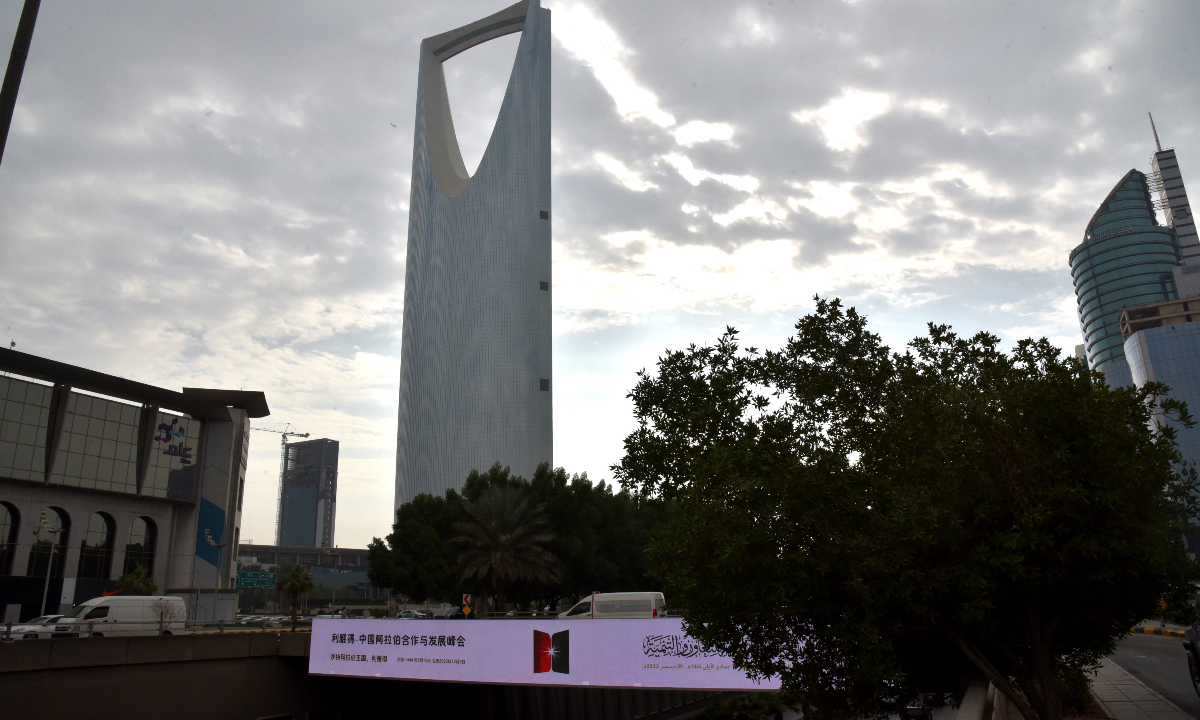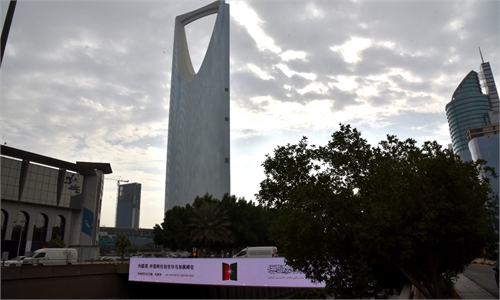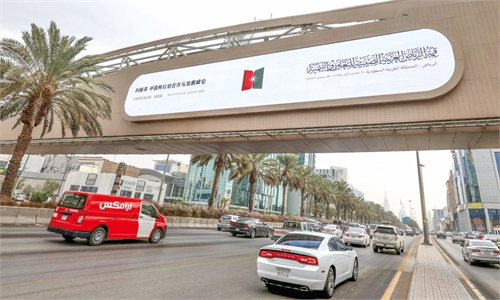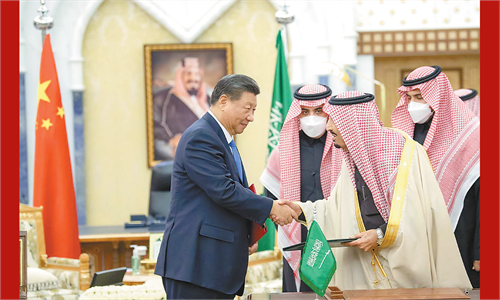
Photo: Yu Jincui/GT
The Middle East region just witnessed the holding of three high-level events with China, two of which are the first of their kind in history, in terms of the magnitude of the event and the partnerships promised for all participating parties.
President Xi Jinping's visit to Saudi Arabia is his second to the Kingdom after his visit in 2016. The second and third summits are the meetings between President Xi and the leaders of the Arab League countries and Gulf Cooperation Council countries.
China's interests lie in maintaining strong relations with the Arab countries. In addition, those three summits are of great importance, given the continuation of the conflict between Russia and Ukraine, with its serious repercussions for the Middle East. The continuation of this crisis will lead to dire consequences for all parties. A large number of Arab parties share a common stance with China in rejecting American hegemony and the West's unilateral and arbitrary sanctions against Russia.
Key players of the Middle East and China are keen to make joint efforts to push for settling differences through dialogue, and to give priority to facing urgent challenges in the fields of energy, food and finance, in order to accommodate the negative effects of unilateral US sanctions.
There are many prospects for joint Arab-Chinese cooperation, including finding ways to promote common development and integrating their strategies within the framework of the Global Development Initiative launched by China after the BRI. The summits are concerned with the issue of development, and aim to direct global efforts toward it, to ensure the achievement of comprehensive and balanced global development, and to advance efforts to achieve the development goals known as the United Nations 2030 Agenda for Sustainable Development.
The Arab-Chinese summits will help consolidate the Arab-Chinese economic and development cooperation and open great development horizons, especially in current international circumstances that are witnessing increasingly intensifying turmoil after the Russia-Ukraine conflicts and the economic crises caused by the COVID pandemic. More efforts are needed from all parties to draw up a cooperative strategy that establishes a new future for Arab-Chinese relations, which was established thousands of years ago, and contributes to creating a new international future of a multipolar world.
For a long time, the US has seen the Middle East region its sphere of influence and takes the spread of democracy as a viable solution to the region's conflicts, and has previously tried to implant Western democratic systems in Iraq and Afghanistan, without tangible success. Consequently, the region is fully aware of, based on its historical experience in dealing with the American security partner, what the liberal principles the US upholds are, and it takes precautions against the US' endeavors to change the region's regimes and interfere in its internal affairs, especially what the US considers violations of human rights.
Since US President Joe Biden assumed power in January 2021, the strategic partnership between Saudi Arabia and the United States has been tested, due to what the US administration considers Riyadh's human rights record. China agrees with all Arab and Gulf countries that democracy and human rights are among the common values of all mankind, and are not patents of some countries such as the US.
The three summits come as confirmation from China that the Shura system in the Islamic world and popular democracy with all its processes in China are among the real wealth of global political civilization, with everyone agreeing in this context that the right to survival and the right to development are at the forefront of human rights and basic human rights for developing countries. In the absence of development, there is no room for talking about human rights, and democracy. The Chinese people and the peoples of the countries of the Middle East and the Arab Gulf have the right to seek better development according to the circumstances of each country.
The Arab and GCC countries' openness to China was motivated - in addition to the turbulent American signals - by the principles of non-interference in other countries' affairs by the Chinese side in its foreign policy. China has not taken a biased position in the fierce regional competition between Saudi Arabia and Iran, nor has it deviated from its position of neutrality toward the Palestinian-Israeli dilemma. On the other hand, its BRI encourages the regional countries to establish partnerships with China, and achieve win-win results.
We must note the importance of the efforts made by Chinese diplomacy to support Arab issues and find peaceful solutions to the existing crises in the region, and keenness of the Arab States to strengthen its relations with China in various fields.
The article was compiled by Global Times reporters Yu Jincui and Xing Xiaojing based on an interview with Nadia Helmy, an expert in Chinese political affairs and professor of political science, Beni Suef University, Egypt. opinion@globaltimes.com.cn



